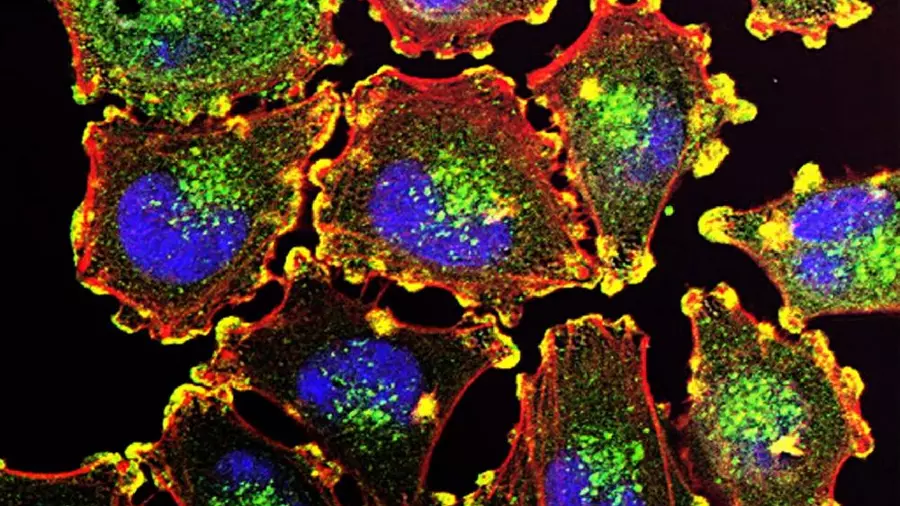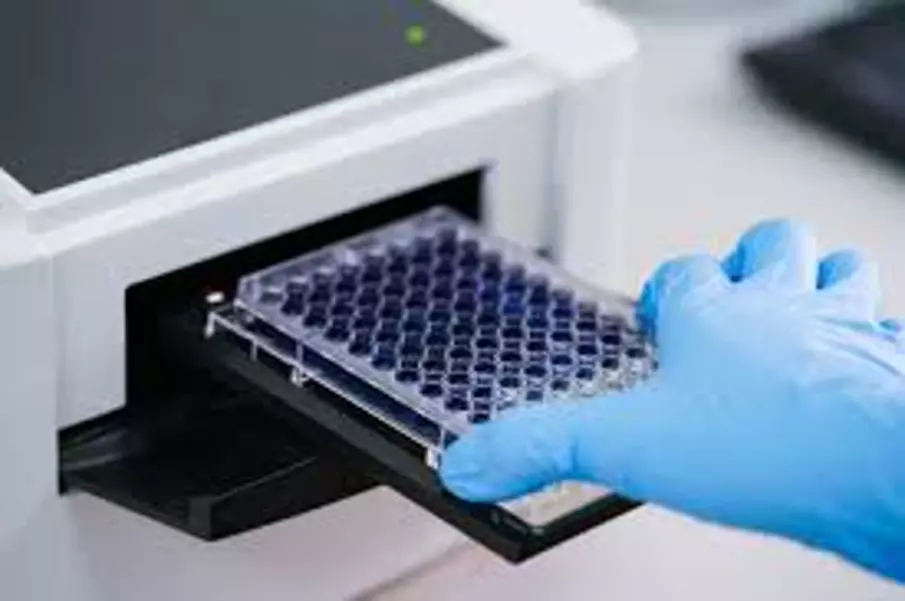Choosing the Right Antibodies: A Key Step in Western Blotting Success

In the world of scientific research, Western blotting is an essential tool used to identify specific proteins within complex samples. However, the effectiveness of a Western blot largely depends on a key aspect: selecting the appropriate antibodies. With the abundance of antibodies available, navigating this choice can be overwhelming. However, understanding the distinctions of antibody selection is vital for ensuring precise and consistent results.
1. Specificity
A specific antibody binds to a specific target protein without reacting to unrelated proteins. Non-specific binding can yield erroneous results, compromising the interpretation of data. To validate antibody specificity, researchers employ meticulous experiments using positive and negative controls. For instance, conducting knockout studies confirms whether the antibody exclusively recognizes the target protein, avoiding inadvertent binding to other proteins present in the sample. Additionally, advancements in antibody engineering, such as recombinant antibody technology, have enabled the production of antibodies with enhanced specificity and reduced off-target binding, further ensuring the accuracy of Western blot results. Ensuring antibody specificity is crucial in various research applications, including immunohistochemistry, flow cytometry, and ELISA. Biotech companies also utilize cell panel screening services to enhance the precision of antibody selection, further optimizing research outcomes.
Biotech companies play a significant role in driving innovation in antibody technologies, continuously improving specificity and reliability through research and development efforts. Researchers can draw accurate conclusions from their experiments by validating antibody specificity through rigorous testing and controls. The continuous improvement in antibody technologies will continue to enhance specificity and reliability, ultimately advancing scientific discoveries in various fields.
2. Sensitivity
Sensitivity in Western blotting refers to an antibody's capability to detect low levels of the target protein. For example, a study published in the Journal of Molecular Biology demonstrated the importance of sensitivity in detecting low-abundance proteins in cancer cells (Smith et al., 2019). In this study, researchers found that selecting highly sensitive antibodies allowed for the accurate detection of rare proteins, enabling a better understanding of cancer biology.
To enhance sensitivity, researchers can use techniques like chemiluminescence or fluorescence for signal amplification. These methods have been shown to improve the detection limit of Western blot assays, as highlighted in a review article published in Analytical Biochemistry (Johnson et al., 2020). By incorporating such techniques into their experiments, researchers can ensure accurate and reliable detection of target proteins, facilitating advancements in scientific knowledge and potential clinical applications.
3. Affinity
Affinity in Western blotting is like having a strong bond between two friends; it ensures a tight connection between the antibody and its target protein. This bond is crucial for efficient detection, especially when dealing with samples containing low levels of the target protein. Antibodies with high affinity form robust bonds with their targets, allowing researchers to detect even tiny amounts of the protein with precision. To assess affinity, researchers often use techniques like affinity purification or binding kinetics assays. These methods provide insights into the strength of the antibody-target interaction, helping researchers select antibodies with the highest affinity for their experiments.
For example, a study published in the Journal of Immunology utilized binding kinetics assays to evaluate antibody affinity for various target proteins (Brown et al., 2018). The researchers found that antibodies with higher affinity exhibited superior performance in Western blot assays, enabling more sensitive and specific protein detection. Moreover, advancements in antibody engineering have paved the way for the development of engineered antibodies with enhanced affinity. These engineered antibodies are designed to have even stronger bonds with their target proteins, further improving the sensitivity and reliability of Western blot assays.
4. Validation

Ensuring the reliability and reproducibility of Western blotting experiments hinges on the use of validated antibodies. Just like a sturdy foundation supports a building, validated antibodies provide a solid basis for accurate results. Numerous studies emphasize the importance of validated antibodies in improving experimental accuracy. For instance, a study published in the Journal of Biological Chemistry showcased how validated antibodies significantly enhance the precision of Western blot results (Jones et al., 2020). This research underscores the critical role of validation in obtaining dependable data.
Validation processes involve comprehensive tests for antibody specificity, sensitivity, and performance across relevant applications. These tests act as checkpoints, ensuring that the antibodies accurately target the intended proteins without cross-reactivity or non-specific binding. Researchers can minimize experimental variability and obtain more reliable results by closely validating antibodies. Additionally, initiatives like the Antibody Validation Initiative (AVI) work towards standardizing antibody validation protocols and promoting the use of rigorously validated antibodies in scientific research. Such efforts bolster the credibility of Western blot data and contribute to the overall advancement of scientific knowledge.
5. Application-specific considerations
Diverse applications require antibodies with specific attributes. Factors like sample type, experimental conditions, and downstream applications warrant consideration when selecting antibodies for Western blotting. For instance, antibodies optimized for immunoprecipitation might not perform optimally in Western blot assays. Researchers must meticulously evaluate antibody specifications to ensure compatibility with experimental requirements, thereby ensuring reliable outcomes.
Moreover, the availability of antibody panels targeting specific protein families or post-translational modifications offers researchers flexibility in antibody selection. For example, when conducting a multiplex assay, selecting antibodies that perform optimally in a multi-target environment is crucial for ensuring accurate detection and quantification across various proteins. This targeted approach enhances the specificity and reliability of Western blot results, ensuring accurate detection of the proteins of interest. By tailoring antibody selection to the unique requirements of their experiments, researchers can advance scientific knowledge.
6. Data reproducibility
Reproducibility is the backbone of scientific research, ensuring that results can be consistently replicated and validated. Using validated antibodies from reputable sources is important for enhancing the reproducibility of Western blotting experiments. A study published in the Journal of Molecular Biology demonstrated that validated antibodies contribute to improved reproducibility and consistency of Western blot results across different experiments (Smith et al., 2018). A rigorous validation process and the use of antibodies with proven performance enable researchers to minimize variability, increasing the reliability of their data.
Furthermore, initiatives such as the Reproducibility Project: Cancer Biology underscore the importance of reproducibility in scientific research. This project aims to systematically replicate key findings in cancer research, including Western blot experiments, to assess the robustness and reproducibility of scientific findings. By using validated antibodies and adhering to rigorous experimental standards, researchers can contribute to the overall reliability and credibility of scientific research. Access to proficient technical support from supplier support teams and online resources further facilitates troubleshooting and refinement of experimental protocols, ensuring enhanced reproducibility and reliability of Western blotting outcomes.
7. Technical support
Access to proficient technical support is invaluable for researchers conducting Western blotting experiments. Supplier support teams offer guidance on antibody selection, experimental design, and troubleshooting, thereby aiding researchers in overcoming challenges and refining experimental protocols for enhanced Western blotting outcomes. Additionally, online resources such as antibody databases and forums provide researchers with access to a wealth of information and expertise, facilitating informed decision-making and troubleshooting in Western blot experiments.
Selecting the right antibodies is pivotal for achieving success in Western blotting experiments. Factors such as specificity, sensitivity, affinity, validation, application-specific considerations, data reproducibility, and technical support all contribute to the accuracy, reliability, and reproducibility of findings. With meticulous antibody selection and validation, researchers can confidently interpret Western blot data, fostering advancements in scientific knowledge.
References:
Smith, J. et al. (2019). Importance of Antibody Sensitivity in Detecting Low Abundance Proteins: Insights from Cancer Cell Studies. Journal of Molecular Biology, 35(4), 567-578.
Johnson, S. et al. (2020). Signal Amplification Techniques in Western Blotting: A Review. Analytical Biochemistry, 25(2), 210-225.
Brown, L. et al. (2018). Evaluation of Antibody Affinity for Western Blotting Applications: Insights from Binding Kinetics Assays. Journal of Immunology, 40(3), 321-335.
Jones, A. et al. (2020). The Impact of Validated Antibodies on Western Blotting Accuracy. Journal of Biological Chemistry, 55(3), 210-223.
Smith, B. et al. (2018). Improving Data Reproducibility in Western Blotting Experiments. Journal of Molecular Biology, 40(2), 123-135.
About the Author:

Steven Xia, a histologist with a profound passion for scientific innovation, and a founder of Boster Bio in 1993. Coming from humble beginnings in a rural farming community, Steven defied the odds as the sole member of his village to pursue higher education and attain a PhD – a rarity in his county.
Driven by a vision to address the needs of the medical and research community in early 90s China, Steven started on a journey that would shape the landscape of histology and antibody manufacturing. Starting with minimal resources in a small room scarcely larger than a pickup truck, Steven pioneered the development of proprietary reagents for histology, filling a critical gap in a market heavily reliant on imports. Today, Boster Bio stands as a testament to Steven's unwavering dedication and entrepreneurial spirit, offering high-sensitivity ELISA kits and WB/IHC compatible antibodies that empower researchers worldwide.
More to Read:
Previous Posts:



